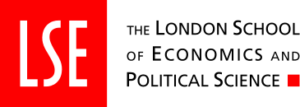Paul Allen died this week. As co-founder of Microsoft, and the person who convinced Gates to join him in developing a new venture in the PC industry, he did more than most to build the current age of personal computers. There are many lessons we can learn from his illustrious career and partnership with Bill Gates. Here are seven.
Get skills to enter an emerging trend This is one of the key lessons since the dawn of the current golden age of billion-dollar entrepreneurship. Getting skills on an emerging trend has been perhaps the most important lesson that we can all learn. Allen and Gates tinkered with the emerging technology of personal computers while in high school together in Seattle. This gave them the expertise to understand what was happening in the field, and to be the leaders in the murky world of an emerging industry. Others who mastered the technology in an emerging trend were the founders of Intel, Apple, Genentech, Google, Amazon, Facebook, and on and on.
Jump on the emerging trend at the right time When the PC industry was emerging, and Altair introduced the first PC kit, Allen convinced Gates that it was time to enter the industry by writing a program for the Altair. He wanted to be a pioneer in this emerging industry and convinced his friend Gates to join him on this venture.
Bootstrap till take off At the start, Allen worked at a full-time job, and wrote software. Gates and Allen ran the venture on a part-time basis until they could muster enough momentum to jump into it on a full-time basis. They did not seek angel or venture capital. Gates stayed at Harvard and worked on the projects. They bootstrapped. They kept control. They avoided dilution. When they found that Altair could use some help, they wrote the software and sold it to Altair. By bootstrapping till take off and avoiding early dilution, they rank among the richest entrepreneurs in the universe.
Imitate (or acquire) and improve When IBM decided to enter the PC industry, Gates found out that they needed an operating system. Allen and Gates bought one, improved it, licensed it to IBM, and became the center of the modern computing world. In today’s cliché-driven world, everyone is fixated on “innovation” or being the “first mover.” Gates and Allen did not try to be first movers to succeed. Instead, Microsoft became dominant by using finance-smart business strategies such as imitating, acquiring, and bundling software such as the spread sheet and word processor, not by “innovating.”
Form an alliance to dominate Allen and Gates formed an alliance to win. The alliance they formed was with IBM, which was the king of the computer world at the time. They rode to success by forming an alliance with IBM, which was seeking an operating system. Their genius was in licensing the operating system to IBM on a non-exclusive basis. That way, they could make their operating system the center of the PC universe. They got IBM’s clout without the baggage.
Re-vision and pivot Most entrepreneurs do not get the magic formula on the first try. They enter, see the lay of the land, and change their strategy. That is what Allen and Gates did when they saw their golden opportunity, focused on the operating system, and made it the PC standard with IBM’s clout.
Know yourself and get the right partner if you need one Allen knew he liked to develop new technologies and that he may not have the killer instinct needed to succeed in an emerging industry. He knew his limits. But he was also aware of the fact that his friend, Bill Gates, had the drive and the will to win. So he followed Bill to Boston after high school when Bill went to Harvard. And they started working together on developing software together. Finding the right partner was key to his glorious success.
MY TAKE: There are patterns in the way that billion-dollar entrepreneurs succeeded. You just need to follow them to find your own path to success. I will write more about these billion-dollar entrepreneurs and their patterns of success in my blogs. And you can also find more of them in Nothing Ventured, Everything Gained, my latest book.





